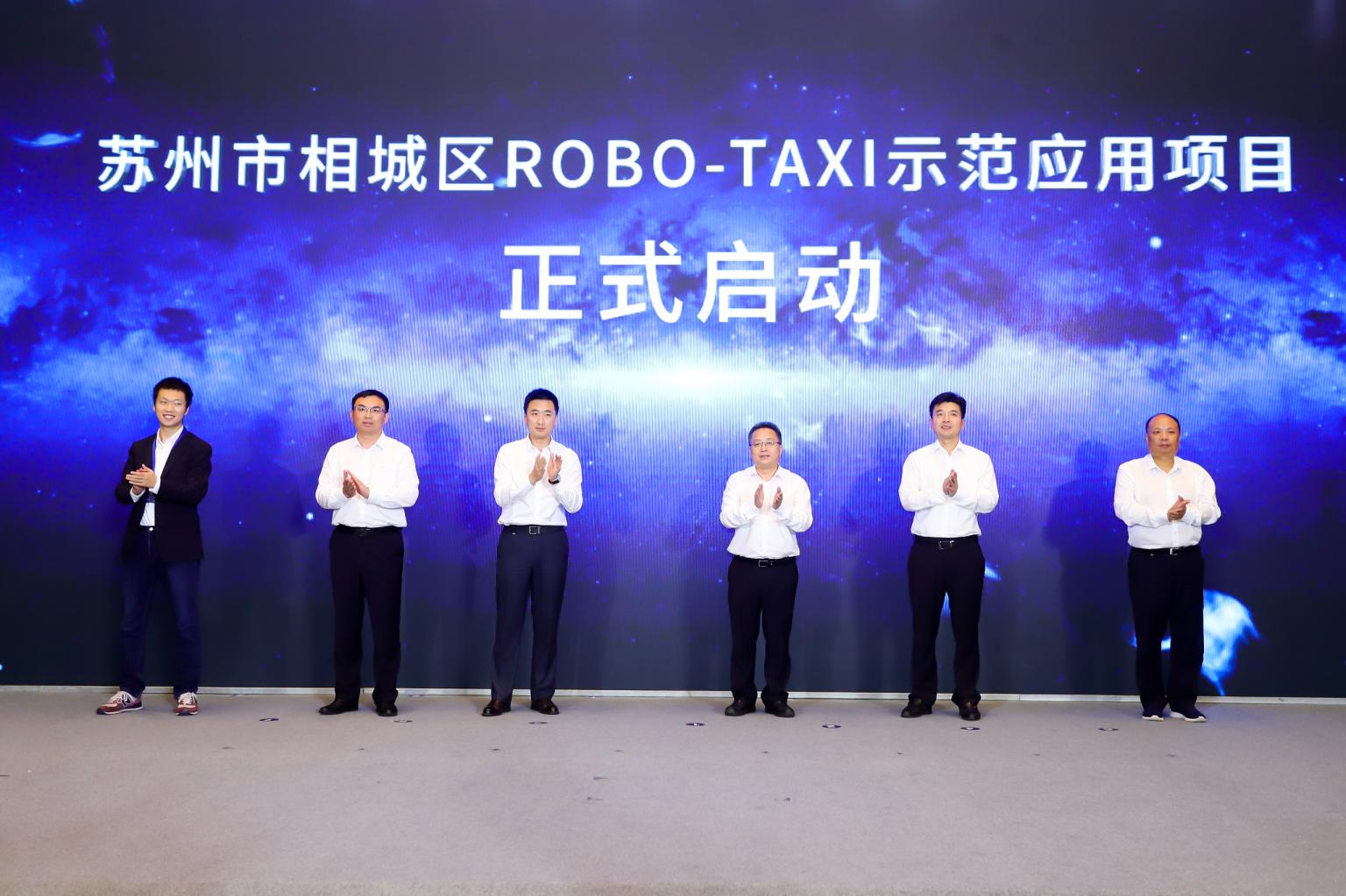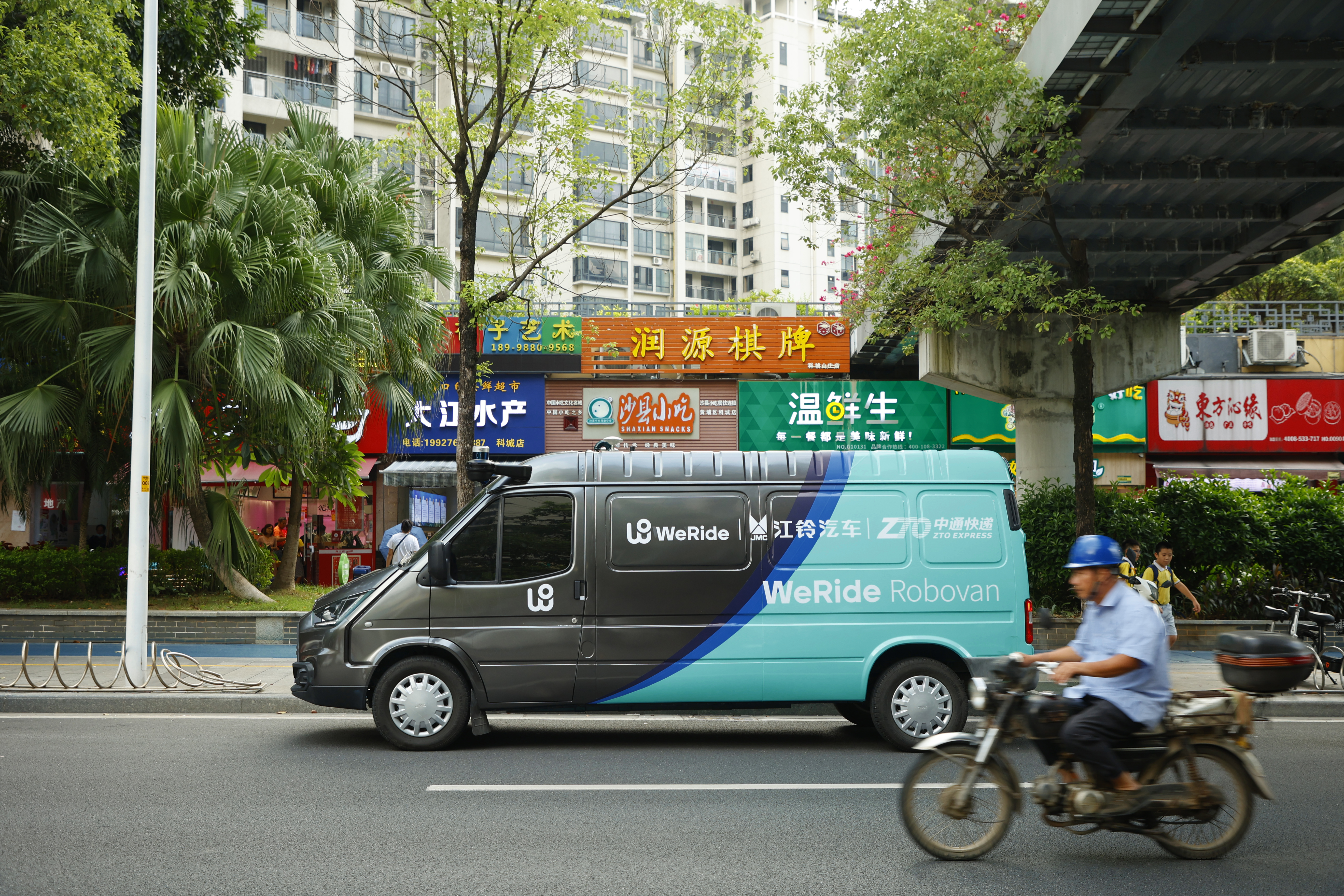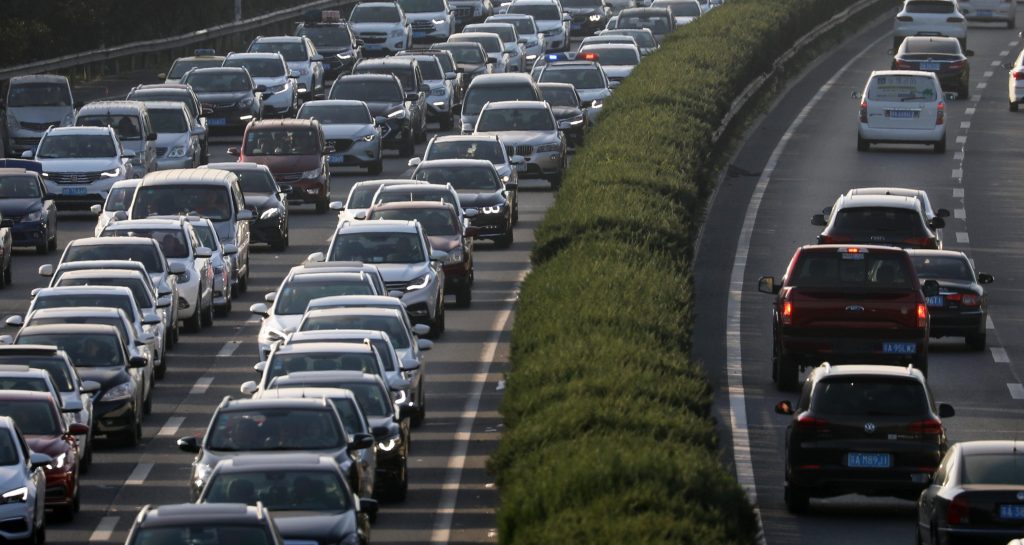China’s autonomous vehicle industry first started seeing some traction around 2016, when a bunch of ambitious startups mushroomed following advances in lidar, computing and machine learning. But the nascent sector was still driving in low gear, as the people working on the tech mostly had computer science backgrounds, and there weren’t many with extensive experience in the automobile industry.
Everyone wanted to build robotaxis at the time, recalls Hongquan Jiang, chairman and managing partner at Boyuan Capital, Bosch’s newly minted venture capital arm in China. “Back then, if you told people you were doing Level 2.5 or 3 [the human driver is expected to take over], you would be scorned. But people in the industry quickly realized Level 4 [the driver can take a nap in most circumstances] was still a distant dream,” Jiang told TechCrunch.
Regardless, these founders’ ambitions kept them on the path, and the industry is finally seeing a resurgence in China. Unlike the previous generation of founders, the space is now seeing more automobile expertise flow in. This generation also seems to be more pragmatic, and rather than shooting for the stars, they’re focused on market demand.
This focus is reaping fitting rewards for startups. The industry saw a period of unprecedented acceleration in 2021, with over $8.5 billion invested in robotaxi startups, self-driving truck developers, lidar makers, smart electric car manufacturers, and chipmakers focused on vehicle automation, according to Crunchbase.
Investors these days have good reason to throw money at this industry, too: Sensors are getting cheaper and more capable, talent from the AI and automotive industries is coalescing, the government has introduced a slew of beneficial policies, and demand is rising as China prepares to cope with a drop in its working-age population.
There’s no fear when the state’s got your back

Like other sectors that depend on public infrastructure, companies working to put driverless taxis, trucks and buses on the road in China have benefited greatly from government support.
We recently explained how China’s city government officials, in a race to raise their own smart transportation poster child, are incentivized to greenlight robotaxi and ADAS (advanced driver assistance system) trials swiftly and hand out generous benefits to promising companies.
“In China, each local government is incentivized to really act like entrepreneurs, like us,” an executive from Daimler- and Bosch-backed Momenta previously told us. In Suzhou, an affluent city near Shanghai, the autonomous driving unicorn runs a joint venture with the local government that aims to bring robotaxi fleets to the city’s roads. The alliance came with an investment from the government, which also set aside a prime location for the company’s sprawling headquarters.
It doesn’t hurt that local governments work with the industry to craft favorable regulations, too. “In both policymaking and lawmaking, China’s AV-related companies have been given a high degree of freedom and flexibility,” says Season Wang, vice president for branding at Chinese lidar maker RoboSense. “Regulators work closely with research institutes and industry players to set standards.”
Beijing, for example, was the first city in China to create a pilot zone for commercial robotaxi operations. The city is working closely with participants in the program, which so far include Pony.ai and Baidu, to figure out the pricing, customer service systems and other aspects.
Governments are also investing in tech and infrastructure to support autonomous driving ventures. A pilot zone in Shanghai, loaded with vehicle-to-everything (V2X) communications sensors, has attracted over 30 autonomous driving projects, including unmanned buses, for trials.
Jiang said that V2X-enabled perception systems installed on traffic lights or on the roadside can make self-driving vehicles safer while reducing future costs. For example, these V2X units can continuously inform a vehicle of its surroundings, lowering the car’s reliance on high-definition maps, expensive sensors and computing power.
Mounting V2X boxes to traffic lights is bound to be a lot cheaper than strapping every vehicle with a dozen sensors and investing in high-definition maps. “Chinese regulators prioritize safety. They’d gladly put up a few more sensors to provide more redundancy so businesses can test more advanced solutions like cars without safety drivers,” Jiang said. “A lot of things can happen in China because of government support, but not necessarily elsewhere.”
In the West, “the roads are the way they are and you need to deal with them, so the cars need to become intelligent to navigate and deal with all the roads,” investor and computer scientist Kai-Fu Lee said. “Robotaxis and robobuses appear to be a high priority in China, whereas I don’t see that in American municipalities.”
Willing markets spur innovation
The selling point for China’s carmakers right now is unquestionably smart driving, whether that means automated parking or assisted highway driving, and the country’s middle-class consumers are the biggest target.

Often thought of as tech-savvy and keen to try new things, China’s middle class is being wooed by automakers and tech firms who have joined hands to capture this market. For example, Huawei is supplying its automated driving chips to Arcfox, a new electric car brand under the Beijing Automotive Group. Jidu, Baidu’s carmaking joint venture with Chinese auto giant Geely, is also investing in automating vehicles.
Commercial vehicle operators are equally, if not more, receptive to the tech. China’s economic blueprint for the 2021-2025 period marks robotics and automation as a key growth area, acknowledging that robots can “help address the aging population problem” and “take over from humans in precarious occupations” like mining.
There is a more subtle force facilitating the marriage of commercial vehicles and autonomous driving. Over the past two decades, China’s logistics industry has thrived in tandem with its e-commerce industry, which created ballooning demand for moving goods across the country. “That’s why a lot of these logistics companies have the internet DNA and are willing to embrace new technologies like autonomous driving,” Jiang said.
An illustrative example of this is WeRide, which is developing robovans with ZTO Express, one of China’s largest express delivery providers. Pony.ai’s autonomous trucking unit also recently formed a joint venture with Sinotrans, a logistics subsidiary of the Chinese conglomerate China Merchants Group.
Trials and errors have also shown startups that driving in constrained environments, such as fixed highway routes or sparsely populated factory areas, is much easier to automate. These enterprise-facing solutions might not inspire the same level of awe as a self-driving car that can handle all kinds of traffic conditions, but they help entrepreneurs quickly glean data, test their hypotheses and bring in revenue.
Where there’s tech, there’s a way
As with most industries, the semiconductor has taken the center stage in the autonomous driving race.
China is seeing a new crop of auto chip startups, including the well-funded Horizon Robotics and Black Sesame Tech. Their emergence in part answers Beijing’s call to localize the country’s strategic supply chains, but they are also breathing fresh air into an industry dominated by Intel.
If computing chips are the brain of a car, perception units are like its eyes. In recent years, some of China’s advanced manufacturing companies have “achieved breakthroughs in sensing technologies,” Wang said, and such progress has “significantly propelled the autonomous driving industry forward.”
For years, lidar was too expensive for mass deployment. Elon Musk famously dismissed the technology. Regardless, the tech has its supporters, and the good news is, lidar just got a lot cheaper: In December, Alibaba-backed Deeproute.ai unveiled a Level 4 driving solution that contained two lidar sensors from Robosense, priced at just $10,000. A few years ago, one lidar sensor could easily cost over $50,000.
“Lidar suppliers in China keep beefing up their product performance,” Wang said. “The [lidar] supply chain in China also offers more flexibility in product customization and a greater price advantage.”
In his book “AI Superpowers,” Lee argued that while the U.S. has achieved groundbreaking research in AI, China is stronger at implementation. By translating theories into products, Chinese startups are able to quickly accumulate data.
Chinese startups often find vehicle automation scenarios that enterprises are willing to pay for and are safe enough to launch, Lee said. Rather than waiting for Level 4 unmanned driving to mature, they first deploy less advanced products in a constrained environment, like a fixed or slow-moving route. By doing so, they can collect data to improve algorithms and make incremental progress over time.
“So the more data you collect, the more you can unconstrain the environment. Maybe initially, your bus only goes from place A to B, then you can update it to go to any place, to go to 30 stops,” Lee explained.
An example of this is Momenta, which supplies advanced driver assistance systems to automakers and also develops driverless robotaxis. Pony.ai has begun building autonomous trucks for logistics customers. And WeRide, valued at $3.3 billion last May, has introduced self-driving buses tailored for city transportation systems.
China’s autonomous driving industry is coming together quickly, and we think it’s got lessons for industries elsewhere. It has no shortage of VC money, an indigenous supply chain that is quickly maturing, eager customers, and perhaps what distinguishes it most from its Western counterparts: a government that’s both supportive and enterprising.































Comment